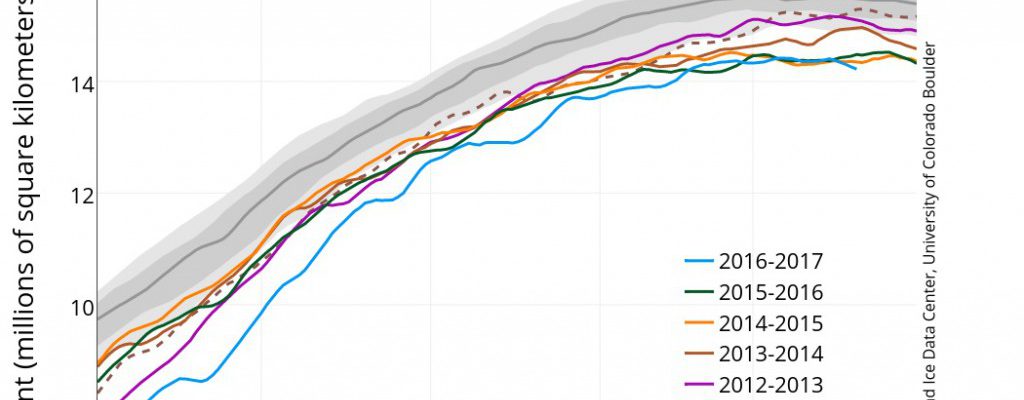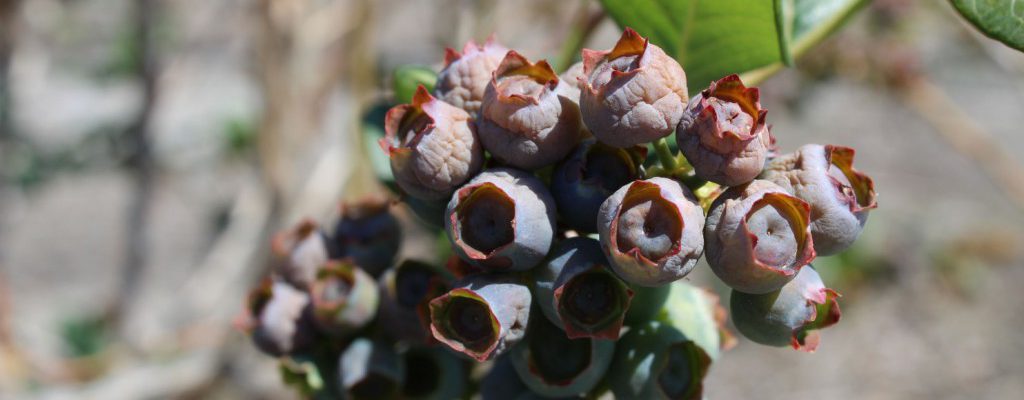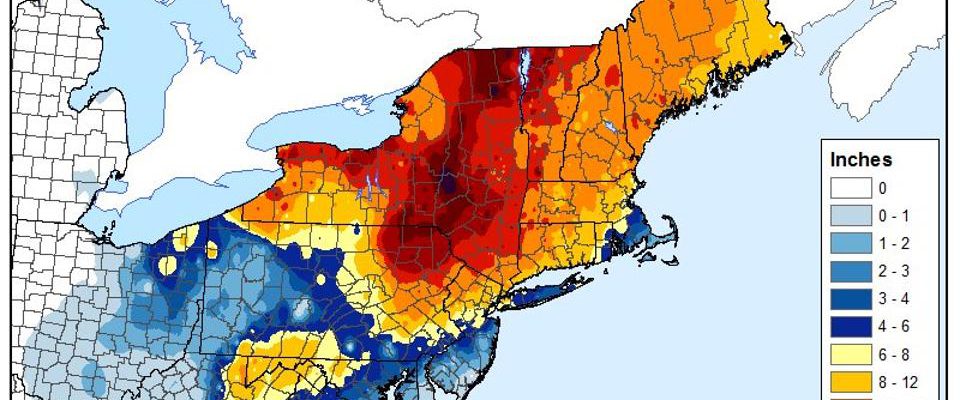Climate and Ag in the news
-

The Washington Post had a light-hearted (I think) opinion piece this week about “phenology anxiety”, which is essentially worrying about early signs of spring and what they might mean for your garden and back yard. People with this anxiety watch carefully for signs of the arrival of spring in the timing of birds, buds and…
Posted in: Climate and Ag in the news -

In a report this week in the Washington Post, “According to the National Snow and Ice Data Center, the sheet of Arctic sea ice, which expands and contracts in an annual cycle, probably reached its maximum size this year on March 7, when it spanned 14.42 million square kilometers, or 5.57 million square miles, atop the Arctic ocean. That’s an…
Posted in: Climate and Ag in the news -

If you’ve been watching the livestock news or reading this blog, you know how devastating recent wildfires in Texas, Oklahoma and Kansas have been to livestock there. Here is a news release from Texas A&M about the critical fire weather conditions that are currently present in western Texas. Critical fire weather conditions present over Western…
-

The Weather Channel showed a video story yesterday on the new types of clouds that have been officially recognized by the World Meteorological Organization (WMO). I’ve talked about some of them before but, hey, you can never get tired of looking at pictures of clouds. The video story can be found here. And don’t forget…
-

The combination of warmer than usual weather, lack of precipitation and the early emergence of plants from winter dormancy has helped lead to near-record low stream flows for this time of year on many rivers in Georgia. Here are a couple of examples. The Chattahoochee near Cornelia is at record low flows for this time…
-

Estimates of damage from last week’s killing frost continue to come in. Here are a few more stories about impacts of the frost on crops in the Southeast, particularly Georgia blueberries and South Carolina peaches. But other crops have felt some impacts as well, while others largely escaped significant damage. The Packer: Georgia blueberries bear…
-

This week in the aftermath of the Northeast blizzard and accusations of a bad forecast there, Dr. Marshall Shepherd of UGA discusses perceptions of good and bad forecasts in his latest blog post at Forbes.com. In some cases, the forecast is quite good but the timing or the placement of the biggest impacts occurs at…